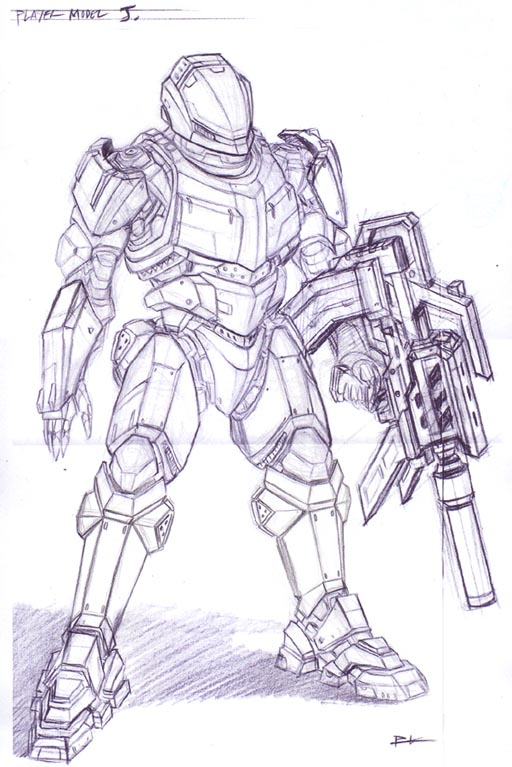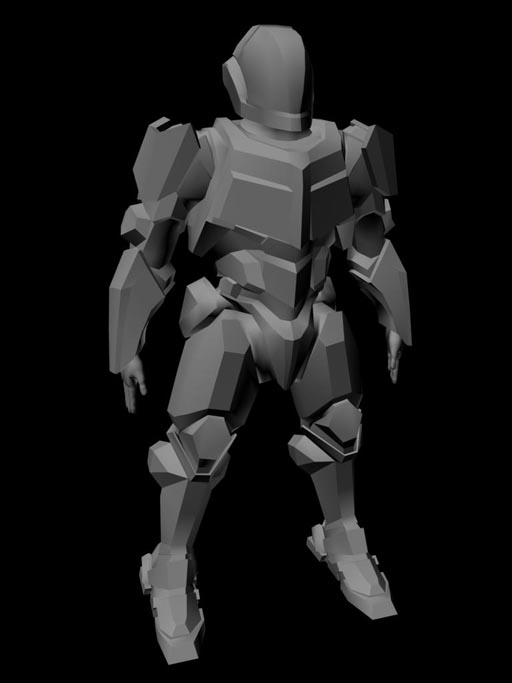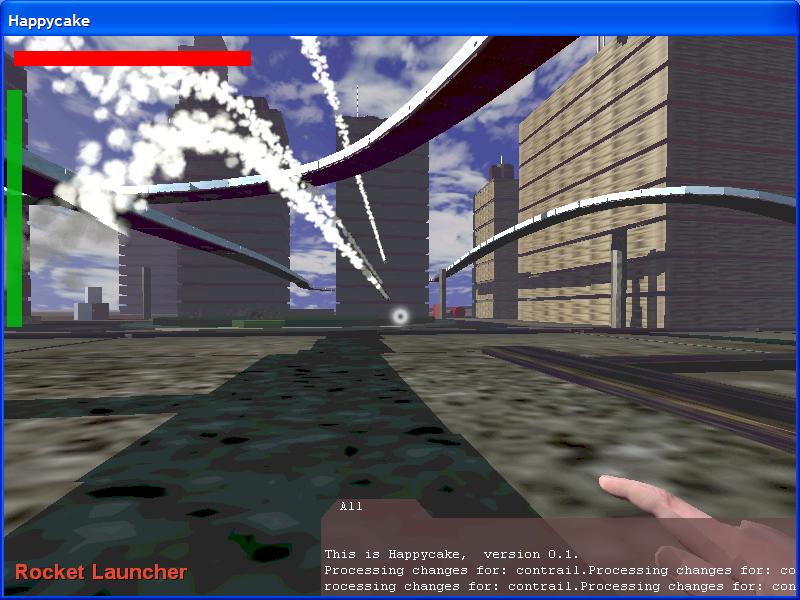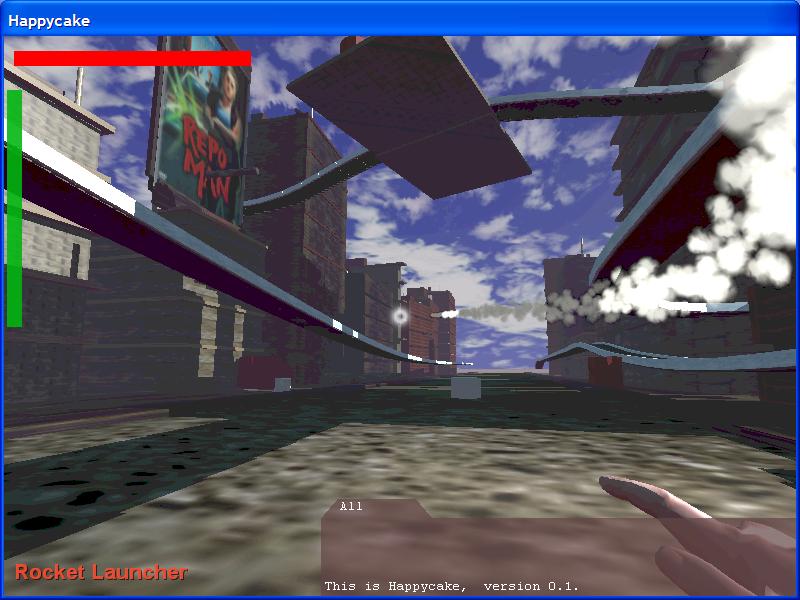
Happycake Development Notes:
Player Mesh, Rockets
30 August 2004
Work on the player model has been progressing. We settled on a more-or-less final character concept, the sketch below done by Peter Kim (the gun is not really part of it, guns are going to have separate concepts made):

This one doesn't have a jetpack yet, as we still need to formulate the general
jetpack concept. But we decided to start modeling the guy and stick the jetpack on
later, so Peter did some orthographic sketches of the player, and passed them on
over to Ethan Abramson to model. Here is the earliest version of the
player mesh:

It's difficult to compare this to the sketch, because it's untextured (hence
missing some of the style it otherwise would have), and the camera angle is
different. But it feels to me like the mesh came out feeling skinnier than
the sketch did. Looking over the two pictures, trying to figure out why
this is so, has been an interesting exercise. Anyway, we did like the
somewhat bulky style of the sketch, so we're going to try to recapture that
inasmuch as we can in the mesh.
On the programming side, I did some work on the particle systems, then the
rocket steering. Happycake rockets work like the ones in Half-Life, with a
"laser guiding" kind of mechanism where the player controls the laser --
wherever it hits, that's where the rocket is trying to go. It feels good
right now, and looks all right too. Here are a couple of screenshots.
(Sadly I had to take these in 8-bit-per-channel color because the particle
systems don't show up in a deep frame buffer, because the current graphics
hardware we have won't do that. Because the rendering happens in
light-linear space, then gets gamma corrected, the resulting images are badly
banded and have these black spots where colors got quantized down to 0. In the final game all of this will happen
with deeper, higher-res colors...)

One thing I really liked about Monolith's FEAR demo was the way smoke
particles tended to hang around for a long time, so I've done something like
that here as well. It's been a sort of universal truth of game engines
that particles are very short-lived things, and it feels good to be going a
little bit beyond that. Right now particles don't collide with the
environment, but the plan is that they will eventually rebound from surfaces, be
pushed by shockwaves, etc. The end result should be neat-o and very
physical-feeling.
The particles receive shadows, as demonstrated in the picture below. At
some point hopefully we may put something in so that particle systems cast soft
shadows (the lack of shadows can be kind of noticable sometimes), but then
again, it might be too expensive. Atman had some kind of plan for making
this work, but I don't remember the details of what he suggested. I
suspect it involves at least one shadow map per localized particle system
piece... which may be more than we want to spend, on this particular project. We'll see.

[Back to Happycake development log]